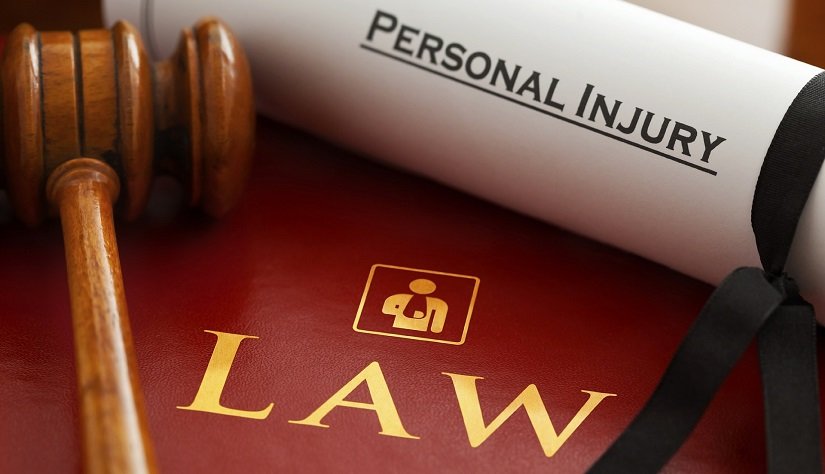Thousands of personal injury* claims are made in Ireland each year. Whiplash is the most common claim – accounting for 80% of all insurance claims. While the average amount paid out per neck injury is €15,000, serious damage can result in payments of up to €77,900. This is according to a comprehensive report published by the Personal Injuries Assessment Board (PIAB) in 2016. But what constitutes a personal injury* claim? And how are they calculated?
Over the many years that Anthony Joyce solicitors have been operating in the personal injury* claims, there are a number of questions that our clients frequently ask us. So, here’s a list of our top 5 most frequently asked questions about making personal injury* claims in Ireland.
1. What is a Personal Injury* Claim?
Personal Injury* law doesn’t just cover whiplash from a car accident. There are many types of cases that you’re entitled to make a claim on. The problem you’re experiencing might be an ongoing physical one like a severe concussion or a dislocated shoulder. Or it might even be a pervasive psychological one, that’s proven more difficult to diagnose. Either of these problems may be as a result of accidents that weren’t your fault.
Because you can’t predict how long you’ll be effected by an injury, there are countless unfortunate situations that could have effected your life in a persistent way and that you are only now beginning to understand the full impact of. To put it simply, if you’ve been hurt on any occasion, have incurred medical bills as a result of an injury, or you’ve simply lost time from work during your recovery period due to the accident, then you may be entitled to make a claim
There are numerous different types of personal injury* claims, that may be relevant to your individual circumstances. Some such personal injury* claims include:
2. How are claim payments calculated?
Calculating claim amounts are dependent on a number of factors including age of the victim, how the injuries have affected their quality of life and the implications for future health. To arrive at an accurate figure, it’s necessary to allow a personal injury* solicitor to properly assess a claim. Doing this will ensure the maximum claim is calculated and allow you to make an informed decision on whether it will be worth your while making a claim for personal injury*.
The Book of Quantum, published by the personal injuries assessment board, set out general guidelines on the amounts that may be awarded as payments in personal injury* claims. An analysis of 51,000 personal injury* cases, calculated the average amounts paid out for different injuries. Some of the average pay-out amounts include:
-
-
- Severe concussion: Up to €74,000
- Skull fracture: Up to €105,000
- Loss of sight in one eye: Up to €140,000
- Loss of thumb: €80,000
- Dislocated shoulder: Up to €75,000
- Punctured lung: Up to €82,000
-
3. What is Contributory Negligence?
Contributory negligence is the failure of an injured party to act prudently and is considered to be a contributory factor in the injury which they suffered. If you’ve been involved in an accident which was not primarily your fault, you should be eligible to make a personal injury* claim to compensate for your injuries. However, if you have played a role in the accident, or your actions have caused you to increase the severity of your injuries, this will reduce your potential pay-out. This is why consulting an experienced solicitor is important to minimise any such contributory negligence that may prevent you from receiving the maximum pay-out for which you are entitled.
A common example of contributory negligence would be failing to wear a seatbelt when involved in a car accident which resulted in injuries of a severity greater than if you had buckled up. Some patients discharge themselves early from hospital, only to have to be readmitted at a later date when their injuries deteriorate as a result. Failing to seek medical advice quickly – such as with whiplash injuries – can cause the injuries to deteriorate in the intervening time. These are all illustrations of personal contributory negligence. Although, they will not have been the primary cause of an injury, they will be factored into any payment amounts which are awarded. Claim amounts would then be reduced by the appropriate degree.
4. Do I need a Solicitor?
Making a personal injury* claim, even with an experienced solicitor to guide you through the process, can be difficult. However, using a solicitor greatly increases your chances of making a successful claim. Solicitors can immediately assess if your claim has merit, accurately calculate the payment you’re entitled to, give an estimate of how long the process will take and negotiate with the insurance company on your behalf.
The experience of a solicitor cannot be underestimated when negotiating a settlement from a third-party insurer. A good personal injury* solicitor will be aware of the tactics frequently used by insurance companies to limit their liability and reduce pay-outs. These knowledge is invaluable, when it comes to negotiating a higher pay-out from the insurance company.
5. How long do I have to Make Personal Injury* Claims?
If you’ve been in an accident, making a personal injury* claim may not be your most pressing concern. However, in Ireland there is a statute of limitations on making personal injury* claims, so delaying the process too much may result in you forfeiting your right to any such claim. Under the Civil Liability and Courts Act 2004, personal injury* claims must be started within two years of the accident. After this period, any claim arising from the accident is barred.
However, there are certain exemptions to the two-year statute of limitations on Irish personal injury* claims. The limitation does not apply in scenarios where,
-
-
- Any of the injured parties were minors (under the age of 18) when the incident occurred
- You do not know, or could not have known, that you were injured
- You did not know, or could not have known, who injured you
- An injury claim is lodged with the Personal Injuries Assessment Board (PIAB) and a letter of acknowledgement is recieved, within the two-year limitation, time stops running against you until the PIAB issues an authorisation to go to court – then it starts up again.
-
Even though the statute of limitations is two years, it’s important to notify, in writing, the person you hold responsible for your injury of the nature of the wrong they have committed with two months of the accident. While this may not affect your application to the PIAB, it may impact your case if you later go to court.
So, if you’ve been in an accident that wasn’t your fault and you wish to make a personal injury* claim, get in contact with Anthony Joyce solicitors. With years of experience negotiating personal injury* claims, our team can advise you on the best course of action for your personal injury* claim.



